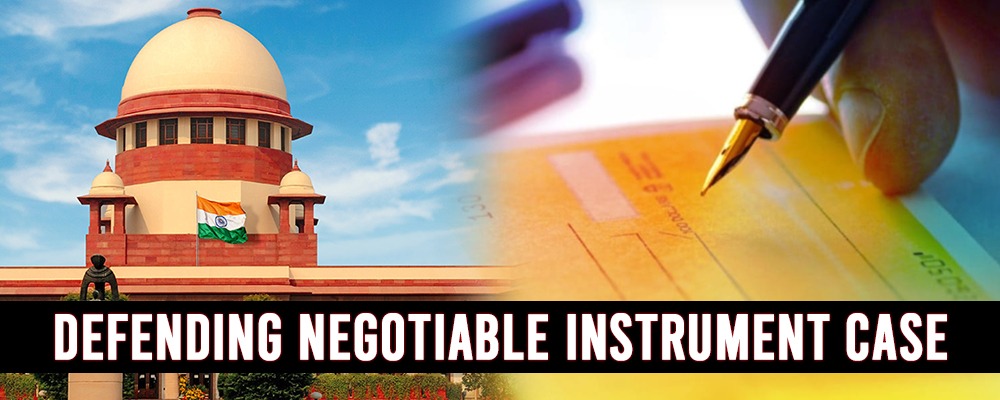Cheque Bounce is when the Bank returns any cheque due to insufficiency of funds in the account drawer and many other reasons. It is called dishonour of payment/ cheque by the drawer due to some or the other reason.
Section 138 of the Negotiable Instrument Act:
When any person maintains an account in a bank, issues a cheque to another person for the payment of a specified amount, out of that bank account for the discharge, wholly or partly, of any amount in debt or pending because of any other liability, which is returned unpaid either because of the reason that the amount of money standing in the credit in that bank account is insufficient or exceeds the amount of money which is to be paid from that bank account.
Need A Legal Advice
The internet is not a lawyer and neither are you. Talk to a real lawyer about your legal issue

Conditions for offence u/s 138:
The cheque issued by the payor must have been presented to the bank within the valid period of the cheque, i.e. three months, from the day it was issued to the payee.
If the bank has returned the cheque unpaid due to some reason mostly due to insufficient funds, then firstly, the payee in the due course of the stipulated time of 3 months, must send a notice in writing to the payor asking to make a payment for the amount mentioned in a cheque, within 30 days and shall attach the receipt of the information received from the bank.
Even after the notice, the payor has not paid the asked amount, within 15 days after sending the said notice so an offence u/s 138 of Negotiable Instrument (NI Act)
Strategy to defend a case:
These lawsuits cannot always be in favour of the payee. There are various cases where cheque bounce is not because of the reasons mentioned herein. Since the burden of proof is on the accused, there are several defences available to the drawer, through which he/she can prove themselves not guilty, by proving how the debt mentioned is not legally enforceable.
In the case of Joseph Vilangadan v. Phenomenal Health Care Services, it was held that the appellants mentioned that the cheque was the refundable security deposit to ensure the performance of the work and the terms of the contract, otherwise there was no existing debt or liability. Also, when the agreement was entered there was no debt or liability on the part of the drawer, and it was mentioned in the terms of the contract that if the contractor fails to perform his services then the respondent could encash and recover the amount. But the work was performed and hence, it did not come under the purview of Section 138 and so it’s not an offence.”
Disputing Signature on cheque:
If the drawee has disputed signatures on the cheque then only the bank official has the right to establish any reliable evidence that the cheque has bounced due to the mismatched signature on the cheque. The bank manager has to show all the records related to the signature of the drawee and shall testify that the signature on the cheque is not of the drawee.
The Negotiable Instruments Act plays an important role to prevent the misuse of cheques and makes sure that the transactions are completed smoothly by penalising the offence of cheque bounce. And also, the defences are available to the drawee to avoid fake cases of cheque bounce or dishonour. But one shall be very careful while dealing with cases of cheque bounce, as they involve many technicalities, and also require very accurate proof of the transactions.
You can reach out anytime to Lead India for asking queries and our expert lawyers can help you with free legal advice regarding cheque bounce cases or anything regarding the Negotiable Instruments Act.





 Talk to a Lawyer
Talk to a Lawyer